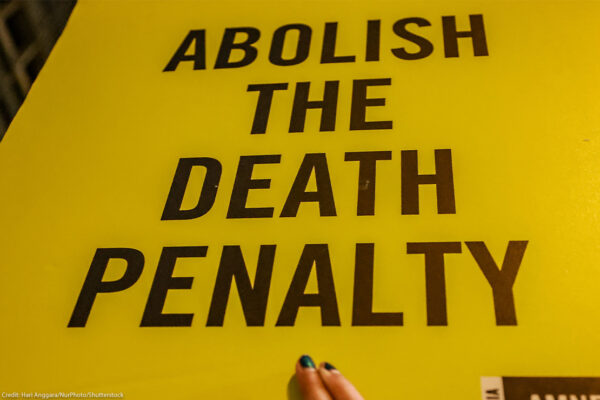The Confederate Flag, Never Proud, No Longer Waves at Shreveport Courthouse
The confederate flag, deliberately adopted as a symbol of white race domination and control, no longer flies on the steps of the Shreveport, Louisiana courthouse. Last week, Caddo Parish commissioners voted 11-1 to take it down, after litigation charging racial bias in several death penalty cases argued under the flag got the attention of the Louisiana Supreme Court and the national media.
In May, ACLU Capital Punishment Project attorney Anna Arceneaux, herself a Shreveport native, filed a friend-of-the-court brief and argued before the Louisiana Supreme Court on behalf of a broad coalition of civil rights leaders, religious leaders and concerned citizens in the case of Felton Dorsey, an African-American man who was sentenced to die in Caddo Parish. The coalition argued that Dorsey’s conviction and death sentence should be overturned because, among other reasons, the 11 whites and one African-American who comprised his jury walked past the Confederate flag dozens of times before deciding his fate. A potential African-American juror in that case, Carl Staples, complained about the injustice of being asked questions about his willingness to be a fair juror when he was forced to walk past that flag. He was rejected from the jury.
In an interview with the Wall Street Journal, Staples said: "When I was screened for the jury, it welled up inside of me and I expressed my feelings[…]I don't understand how judges or lawyers allowed that flag to stand."
In her argument in Dorsey v. Louisiana, Arceneaux told the court:
The Confederate flag is viewed by many people as a symbol of white supremacy and racism, and its presence outside the courthouse represents the legacy of lynching, terror and oppression of the African-American race. Flying the flag outside the courthouse risks diminishing the trust of African-Americans in the criminal justice system and priming white jurors to view African-American defendants and victims as second-class citizens.
Ultimately, the Louisiana Supreme Court issued an opinion agreeing with the coalition that the presence of the Confederate flag prominently displayed outside a Louisiana courthouse could be offensive to some. Unfortunately, the court allowed Mr. Dorsey's conviction and death sentence to stand anyway, since his trial lawyers had not raised any objection to the flag's potential bias at his trial. The ruling did, however, invite a challenge against the flag in future capital hearings.
Thankfully, we didn’t have to wait for future litigation to fix the problem. A coalition of parties represented by the ACLU and including the ACLU of Louisiana brought the matter to the Caddo Parish Commission, and on Thursday the commission voted to remove the flag, proving what the ACLU knows: sometimes, it takes a village to get justice. And while those villagers emphatically include the lawyers who first raised the issue in court, it took organizers, lay leaders, and committed citizens to lower the flag.
This is not the end of the story, but, as Rachel Maddow said, it is definitely good news. There is no place in the American justice system for the so-called “battle flag” of the Ku Klux Klan and the Knights of the White Camellia, no place for the symbol of the oppression and terror which they so often inflicted in the dead of night. Which is when, sometime before dawn on Friday, the Daughters of the Confederacy took it down.
Learn more about race and the death penalty: Sign up for breaking news alerts, follow us on Twitter, and like us on Facebook.


